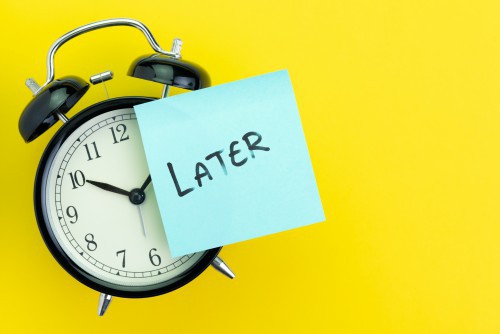Why people procrastinate and how to stop it
Views:1507 |
By:
Wanjiru |
Act:
Visit Business

Procrastination is the action of unnecessarily and voluntarily delaying or postponing something despite knowing that there will be negative consequences for doing so. Procrastination is more than just laziness or poor time management.
When it comes to procrastination, telling someone to just do it doesn’t work, It would be like telling someone with depression to cheer up.
Statistics show that 15%–20% of adults are affected by procrastination which some do not notice. In a study of procrastination, Joseph R. Ferrari, PhD, the leading researcher, reveals how the behavior is more like a form of self-sabotage. Demotivating psychological factors, such as fear of failure or anxiety, outweigh self-control to get something done.
After my research I came up with psychological and non psychological list of why people procrastinate:
psychological:
# Fear of criticism
# Waiting until the last minute.
# Low self-esteem.
# A tendency to self-defeat.
# Depression.
# Trouble focusing.
# Fear of trying something challenging.
Non psychological :
# Fill your day with low-priority tasks.
# Leave an item on your To-Do list for a long time, even though it's important.
# Read emails several times over without making a decision on what to do with them.
# Start a high-priority task and then go off to make a coffee.
# Fill your time with unimportant tasks that other people ask you to do, instead of getting on with the important tasks already on your list.
# Wait to be in the "right mood," or wait for the "right time" to tackle a task.
How to stop procrastinating?
# Do not wait until the last moment to perform a task.
# Do not have a heavy to do list. It makes you feel demotivated.
# Be a strong believer and be optimistic with whatever you do.
# Learn how to focus on one thing at a time.
Procrastination prevents you from reaching your full potential in your relationships, career, and beyond. It impedes teamwork, decreases self-esteem, and even leads to depression and job loss. Make efforts to avoid procrastination and be the best you can. As someone said “The chronic procrastinator, the person who does this as a lifestyle, would rather have other people think that they lack effort than lacking ability.”

 Living Beyond Your Means: Signs, Causes, and How to Break Free
Living Beyond Your Means: Signs, Causes, and How to Break Free  Why People Say ‘I Left the Church, Not God’—And What It Really Means
Why People Say ‘I Left the Church, Not God’—And What It Really Means  Natural Anti-Aging Tips Every Woman Should Know
Natural Anti-Aging Tips Every Woman Should Know  Reasons Christians live small lives
Reasons Christians live small lives  what success really means
what success really means